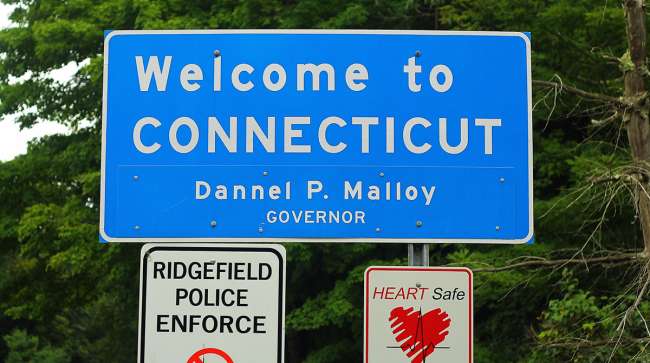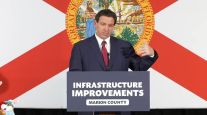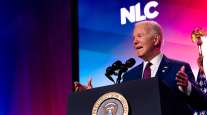Staff Reporter
Controversial $10 Million Toll Study Approved in Connecticut

Connecticut’s State Bond Commission recently approved a $10 million study to assess the feasibility of tolling on certain routes in the state.
The commission’s July 25 vote came shortly after Gov. Dannel Malloy signed an executive order asking state agencies to conduct an assessment regarding a new funding plan to support the transportation system.
According to a press release issued by the governor’s office July 17, the purpose of the study is to prioritize economic fairness to Connecticut residents by ensuring that out-of-state motorists help shoulder the financial burden associated with maintaining the state’s highways.
“During this past legislative session, we heard time and again from legislators that they wished for more information regarding electronic tolling, including specific recommendations with respect to its possible implementation,” Malloy said in the press release.
RELATED: Rhode Island says first month of truck tolling garners $625,989
Malloy’s executive order charges the Connecticut Department of Transportation to create an assessment for possible electronic tolling systems on interstates 95, 91 and 84, the Wilbur Cross Parkway and the Merritt Parkway. The Wilbur Cross Parkway runs from Milford to Meriden in the southern part of the state. The Merritt Parkway runs through the southwestern portion of the state from Milford to the New York border at Greenwich.
ConnDOT also is tasked with exploring ways to provide discounts to residents, developing plans to potentially reduce the fuel tax and studying the environmental impacts of tolling systems.
Legislators are seeking a new funding mechanism to offset the diminishing Special Transportation Fund, which supports Connecticut’s transportation system and is fed primarily by the fuel tax. Vehicles’ increasing fuel efficiency has contributed to the account’s gradual insolvency.
Fuel taxes in Connecticut are among the steepest in the country. Connecticut ranks No. 7 on the American Petroleum Institute’s list of states with the highest gas taxes. As of July 1, Connecticut residents were taxed 62.2 cents per gallon for gas, a sum consisting of state and federal excise taxes, as well as other state taxes. Pennsylvania topped the list, with a gas tax of 77.1 cents per gallon.
Connecticut ranks No. 9 on API’s list of states with the highest diesel taxes. As of July 1, people in Connecticut faced a tax of 68.3 cents per gallon on diesel. This sum, too, is made up of state and federal excise taxes and other state taxes. California topped this list, with a diesel tax of nearly $1.11 per gallon.
RELATED: Most Americans support usage fees to fix crumbling roads, survey shows
The implications of the tolling study likely will depend on who succeeds Malloy as governor. Malloy, a Democrat, announced in April that he will not pursue a third term.
“As Connecticut’s General Assembly and next governor consider how to address the future of our state’s transportation funding, this study and plan will prove to be invaluable in their endeavor to make an informed decision,” Malloy said in the release. “After all, we need to be truthful with the people we were elected to represent. Without transforming the way we fund our highways, we will be unable to pay for the large-scale construction and rehabilitation projects that our state needs to ensure continued safe travel while attracting businesses and growing our economy.”
Connecticut is not alone in its efforts to explore tolling as a source of transportation funding. Virginia transportation officials are conducting a similar study to examine the feasibility of truck tolls along I-81. The Rhode Island Department of Transportation recently set up the first two in a series of 13 truck-tolling gantries that will be posted throughout the state.
Certain states have increased the fuel tax as a way to boost funding. As of July 1, Oklahoma, South Carolina, Indiana, Maryland, Tennessee, Vermont and Iowa joined others that have increased taxes to channel more revenue to transportation projects.
California, Montana, Oregon, West Virginia, Utah, New Jersey, Georgia, Idaho, Michigan, South Dakota and Kentucky are among the states that previously increased fuel taxes.
Some states have explored options other than increasing the fuel tax. Several, including Delaware, Washington, Hawaii, Minnesota, Colorado and California, have conducted pilot programs to test the possibilities of miles-based user fees.




